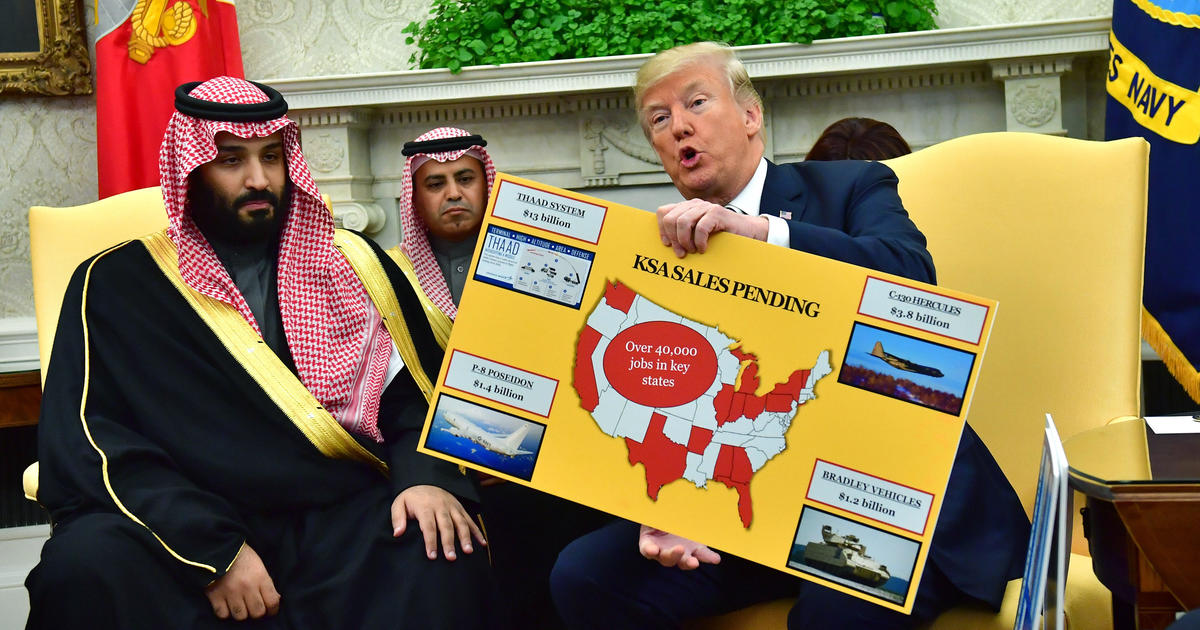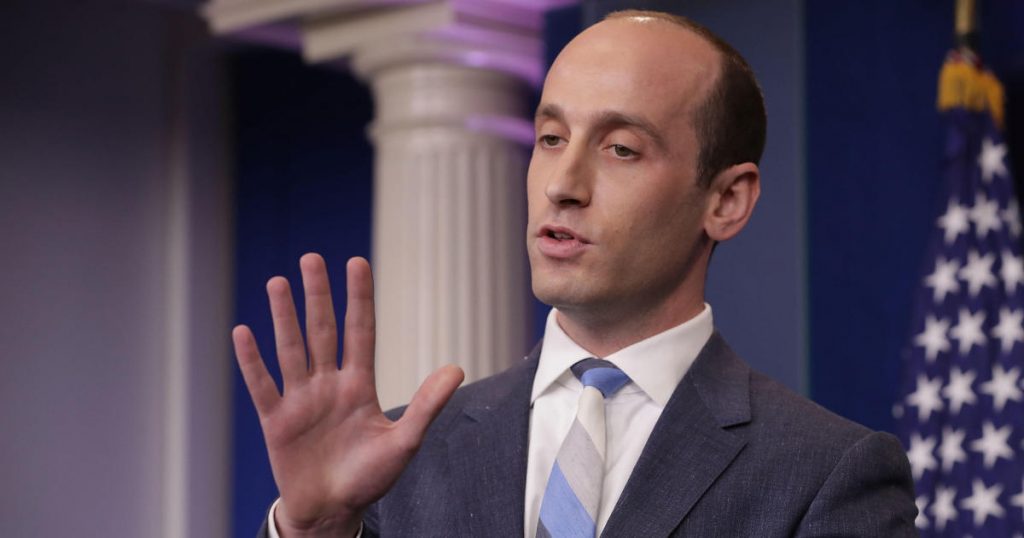
The U.S. remains the world’s largest weapons exporter, a position it has held since the late 1990s. Our biggest customer? Saudi Arabia.
That business reality may help explain President Donald Trump’s reluctance to crack down on the kingdom whose royal rulers have been accused of murdering a Saudi dissident journalist who lived in the U.S. when he disappeared after entering the Saudi consulate in Istanbul.
In the fiscal year that ended Sept. 30, the U.S. sold a total of $55.6 billion of weapons worldwide — up 33 percent from previous fiscal year, and a near record. Fiscal 2012 remains the record year for dollars earned from weapons exports: $69 billion in arms sales, with $29 billion of that to Saudi Arabia. (Country breakdowns for the 2018 fiscal year weren’t available.)
“I don’t like the concept of stopping an investment of $110 billion into the United States,” President Trump said at an Oval Office event Thursday, dismissing the idea of stopping weapons sales to Saudi Arabia to punish its crown prince, Mohammad bin Salman, for any involvement in the alleged murder of Jamal Khashoggi.
Last year in May, President Trump used his first foreign trip as an occasion to visit the kingdom and sign an arms deal advertised as $110 billion — a figure experts have since disputed as inflated, since it was not based on actual, signed contracts and included at least $23 billion previously approved by the Obama administration, according to Defense One. But even before that announcement, Saudi Arabia was by far the U.S.’ largest arms client, according to the Stockholm International Peace Research Institute.
Over the five years ending in 2017, nearly one-fifth, of American weapons exports went to Saudi Arabia, SIPRI reports. Overall, half went to the Middle East and North Africa. In the 2017 calendar year alone, some $18 billion in new Saudi arms deals were cleared by the U.S.
Bombs away
The current White House has shifted the type of weapons exports the U.S. favors. Prior to this year, aircraft was the largest component of U.S. arms sales, according to the Security Assistance Monitor. Under the first year of the Trump administration, sales of bombs and missiles dominated.
That year, the U.S. sold Saudi Arabia $298 million worth of Paveway laser-guided missiles; $98 million in ammunition for various types of firearms and $95 million worth of programmable bomb systems. A recent attack on a school bus in Yemen that killed dozens of children was carried out with a bomb the U.S. sold to Saudi Arabia, CNN has reported.
Just this year, the State Department has approved sales to Saudi Arabia of $670 million worth of BGM-71 TOWs, a type of anti-tank missile, $1.3 billion worth of medium self-propelled Howitzers and at least $600 million in “maintenance support services.”
Arms sales as economic development
The Trump administration has taken steps this year to further boost arms sales abroad. This spring, the National Security Council put forth a policy that cuts regulations and diminishes the long wait times usually associated with weapons sales, in the name of economic growth. The policy, called an “Arms Transfer Initiative,” is explicitly meant to “expand opportunities for American industry [and] create American jobs,” Tina Kaidanow, a longtime State Department diplomat who recently moved to the Pentagon, said at a conference in August.
Some economists question the effectiveness of the military jobs approach, however, noting that federal spending on education, health care or infrastructure creates many more jobs than defense spending.
Meanwhile, the U.S. remains the world’s No. 1 arms exporter, with one-third of the globe’s international arms exports originating here, according to a report by SIPRI. Russia, the next-largest exporter, is responsible for just over one-fifth.
As for where the dollars from those transactions are flowing—here are the U.S. corporations that contract with the Department of Defense, along with the money committed to them last year.
© 2018 CBS Interactive Inc.. All Rights Reserved.

